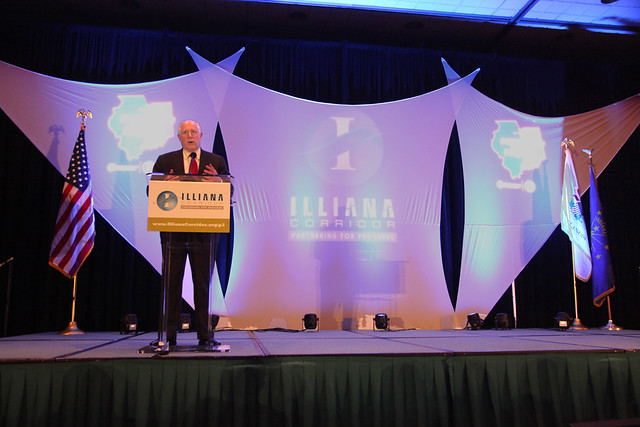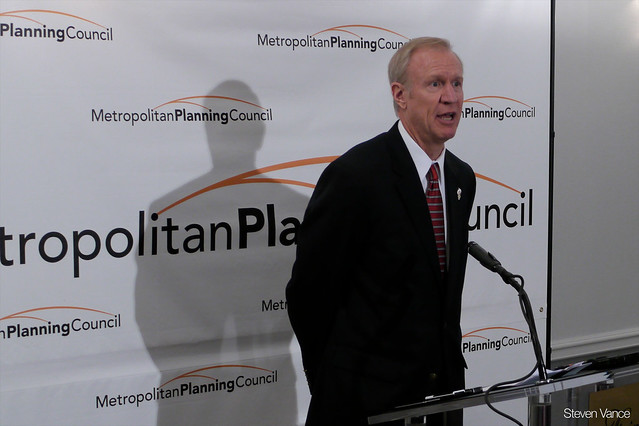
Governor Pat Quinn, who is up for re-election next week, shared warm words about sustainable transportation with the Active Transportation Alliance in response to their candidate questionnaire [PDF]. His words haven't always been matched by actions from his five-year-old administration -- but unlike opponent Bruce Rauner, at least he's talking to advocates.
Quinn's written response stated that, between eight options that Active Trans listed to improve the public's ability to to get around Illinois, "All are priorities for my administration... with the exception of widening existing roads." He added that Illinois is a "Complete Streets" state, "where we believe in accommodating the transportation needs of all residents." Indeed, Illinois was the first state to adopt Complete Streets as law, back in 2007.
Yet under Quinn's administration, the Illinois Department of Transportation has demonstrated that its priorities include widening existing roads, rather than bus rapid transit, congestion pricing, or the other options Active Trans outlined. IDOT has widened dozens of miles of roads throughout the suburbs, and even widened Harrison Street through the South Loop in 2012 -- a move that the Chicago Department of Transportation partially reversed this year with a road diet and buffered bike lanes.
Quinn has also championed the expensive and unnecessary Illiana Tollway as his top priority for IDOT, thereby depriving all other priorities of crucial state funding. That's even as support for the road continues to diminish: although the state has repeatedly claimed that the road is necessary to support truck traffic, major trucking interests have soured on the proposal.
According to Active Trans, IDOT's own survey "identified Protected Bike Lanes as the most preferred treatment for making roads safer and comfortable for biking," but the department currently bans cities from installing protected bike lanes on state roads. Quinn pledges that, during his next term, he'll install 20 miles of PBLs on state roads. He also took credit for IDOT's newly cooperative stance regarding a curb-separated protected bike lane on state-administered Clybourn Avenue, after an allegedly drunk driver hit and killed Bobby Cann while Cann was bicycling on Clybourn.
IDOT hasn't been entirely indifferent towards bikes over the past few years, though. After he submitted his responses to Active Trans, the governor announced that IDOT would spend $3 million to expand the Divvy bike-share system further into Chicago's neighborhoods and beyond the city limits, into Evanston and Oak Park.
Writing about the reconstruction of North Lake Shore Drive, another IDOT road, Quinn wrote that he would "lead IDOT to support alternative transit improvements to accommodate more travel in the corridor."
Republican gubernatorial candidate Bruce Rauner did not respond to Active Trans, consistent with his campaign's strategy to avoid answering questions on topics for which he has no public record. Active Trans' Ron Burke said that "we shared our platform and survey with all the gubernatorial candidates. We wish Bruce Rauner had responded." Libertarian candidate Chad Grimm also did not respond.




